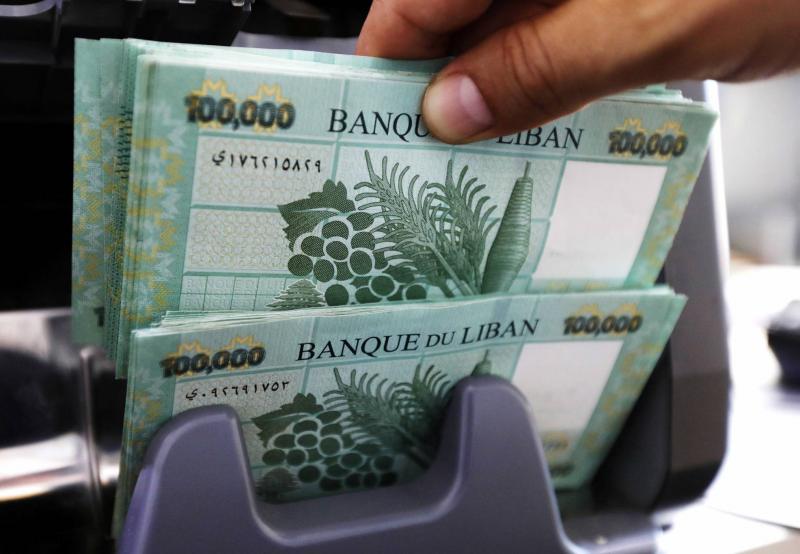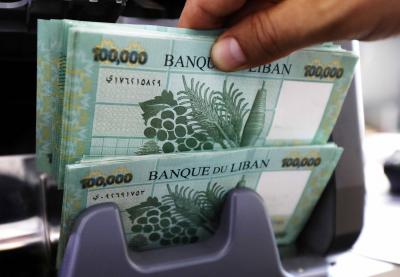Amid the economic collapse that Lebanon has been experiencing for three years, nearly 80% of the population lives below the poverty line and is unable to meet their basic needs. Despite all the demands and protests that have occurred and continue, the Lebanese citizen can only think of their day-to-day survival, ensuring their bread and warmth. After three years of financial, political, and social collapse, the removal of subsidies on essential goods has become a reality, and comprehensive dollarization is an inevitable logic. So, how do low-income individuals manage to survive on their salaries in Lebanese Lira?
A new study conducted by Human Rights Watch sheds light on the alarming levels of poverty and food insecurity in Lebanon due to declining economic activity, political instability, and rising living costs. The study reveals that authorities do not guarantee the right of every individual to an adequate standard of living, including the right to food. This has pushed millions of people in Lebanon into the grip of poverty, forcing them to reduce the amount of food they consume. After three years of crisis, the government has not taken sufficient measures; the current subsidy system, according to Human Rights Watch, reaches only a small percentage of low-income individuals, leaving the majority without any support.
The survey shows that about 70% of Lebanese households face difficulties in covering their expenses or delaying them, while only 5% have received some form of government assistance.
### Inability to Cover Basic Expenses
According to the latest study by Human Rights Watch on the alarming levels in Lebanon, it has become evident that Lebanese citizens are living through the toughest days of their lives compared to previous years, struggling to secure their daily requirements. For example, 65.3% cannot afford heating, 56.2% cannot afford suitable clothing, 55.2% struggle to pay for education fees and materials, 43.5% have difficulty in transportation to schools and workplaces, 43.1% cannot secure medications or medical care, 42.1% struggle with childcare, 36.6% cannot obtain internet access, 35.1% have trouble paying rent or mortgages, and 34.7% face difficulties in providing school meals.
The responsibility lies with all the officials in Lebanon, who believe there is "no need to panic!" even as we face the hardest days of our lives. What does not shake the Lebanese citizen is their dignity, pride, and faith in a better day. It is indeed true that they fight until the last breath, and it is equally true that they share whatever they have with optimism, gratitude, and appreciation. However, the current security situation does not bode well, especially after the bread and fuel crisis. What will citizens do today when the dollar reaches 100,000 L.L.?
### How is Lebanon Violating the Right to Housing?
At the end of 2022, the Housing Monitor followed up on 57 housing threat cases affecting 239 people. It was found that children under 18 make up approximately 47% of those affected. Notably, 33 children live near schools and are at risk of losing this essential component due to threats to their housing. This situation may force parents to succumb to unjust demands from landlords to ensure their children remain close to their schools at least until the end of the academic year. In the event of eviction, parents may incur extra expenses to provide transportation for their children to schools, affecting their overall housing expenses.
On the other hand, individual tenants accounted for about 12% of reported cases, including workers, employees, and university students. The monitor also recorded 7 elderly individuals, one person with a disability, and 3 queer individuals among those affected. Geographically, the highest reporting rates came from Beirut (24.6%), particularly from neighborhoods such as Mdawar 14%, Al-Mazraa 7%, and Al-Rmeil 3.5%, followed by Bourj Hamoud at 15.8%. Notably, these neighborhoods currently house low-income residents and working-class individuals of all nationalities and suffer from poor living and housing conditions. They also have the highest proportion of reports from non-Lebanese individuals.
In this context, Raymond, a father of two daughters, asserts that their area, Bourj Hamoud, is experiencing severe risks due to this crisis, stating that even reaching school has become the biggest burden for them as parents. He says, "For families whose income is still in Lebanese Lira, which is the case for most families in Bourj Hamoud, we struggle to provide food and drink for the children, and we fear for tomorrow. He asks, 'In a country known for its generosity, hummus, tabbouleh, and meat, since when do we fear not being able to secure a living? How long will this situation remain as it is today?' It's true that most schools are close to our homes but the buildings are at risk of collapse at any moment."
He continues, "Bourj Hamoud used to be bright with its tourists and people, renowned for its delicious food, warm hospitality, and quality restaurants. Ironically, today its people are asking for 200 dollars to get by. The tragedy is that the Lebanese currency has lost all its value, and the greater tragedy is that we are still being paid in Lebanese currency, as is the case for freelance jobs, kiosks, crafts, and manual work. Those who have worked hard and saved significant amounts cannot retrieve them due to the theft and monopolization of Lebanese banks over their clients."
Raymond concludes, "We hope that officials will visit Bourj Hamoud to truly understand what is happening on its streets and control drug use and gang theft, as security has deteriorated due to the rampant dollar and the spread of poverty. Hunger knows no bounds. Regarding the life we live today, I wish that just one official could experience it to understand the meaning of the humiliation and poverty we face, whether in terms of securing hot water for bathing, providing a tin of olive oil for the children, or even buying a carton of eggs that I haven't purchased in a year and a half. Even my wife, who used to help me with expenses, was forced to leave her job due to poor service and slow internet at home."
How long will the Lebanese citizen continue to complain under these circumstances, and will they pass through this tunnel and reach safety?




